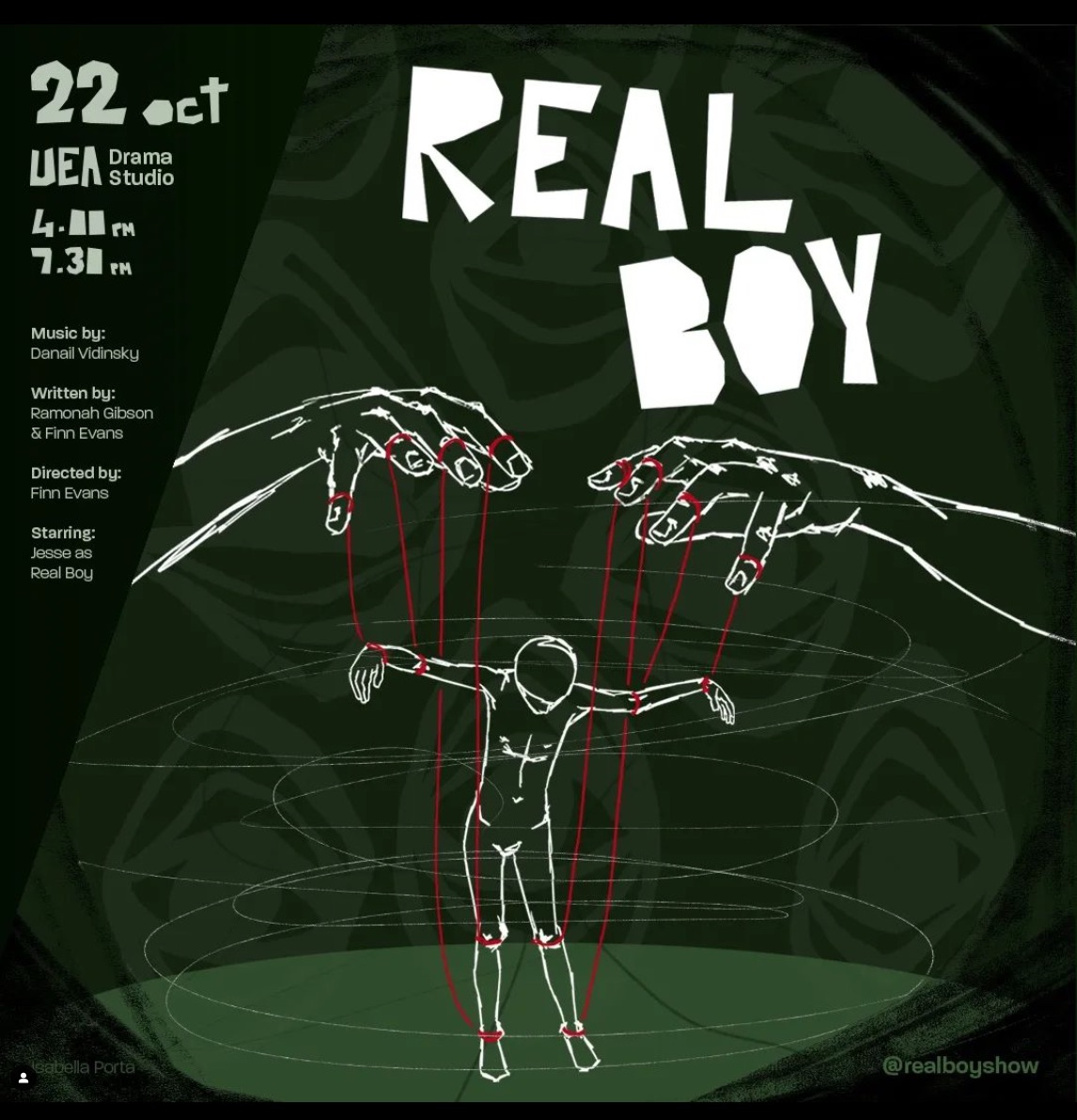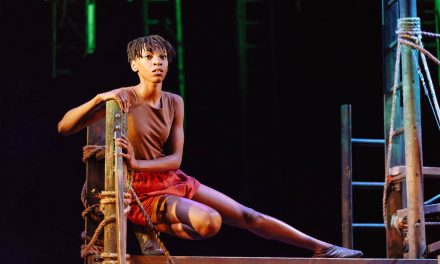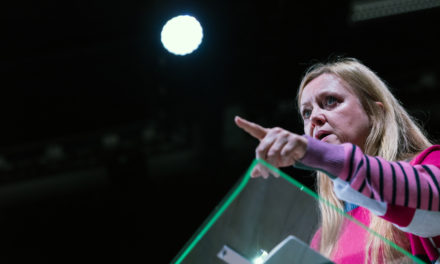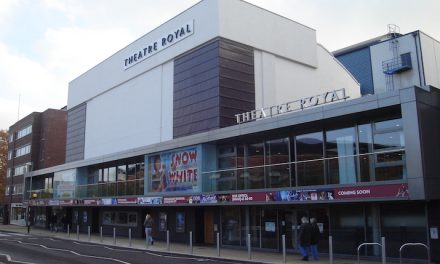It is always a refreshing experience to review a play at the UEA Drama Studio, where skilled students work hard to present performances with reliably high standards of production and performance. They often challenge the boundaries of theatrical convention and are innovative in approach.
Real Boy is a new work written by Ramonah Gibson and Finn Evans and directed also by Finn, that takes a close and sympathetic look at the difficulties and rewards in the life of a child who is born female but feels more comfortable as a boy.
The work is presented as a series of small vignettes showing the ‘Real Boy’ as a young child (Sam Nuttal) and as a teenager, played by Jesse Firman, interacting with friends, bullies, therapists, their mother and school bullies. Jesse builds a character that is full of intelligence, charm and care for those around him, giving us a real and very believable youngster that is impossible to dislike as we see life through his eyes and experiences.
Real Boy builds friendships with two other youngsters who each have their own difficulties in fitting into the society they find themselves in; Figaro (Will Mullet), a childhood friend, and Truman (Nabil Dozoum), who intervenes to save Real Boy from another round of unpleasant bullying, while also empowering him to beat the bullies on their own terms.
The relationship with his mother is particularly fraught, Mum (Kira Moss) just wants a ‘normal’ daughter who likes the things a girl is supposed to, not a tomboyish confusion of identity. Eventually Mum feels the need for outside help to normalise her child.
Anyone fortunate to have friends who have changed, or tried to change, their gender identity will recognise the real difficulties facing them even from those who are closest and might be expected to be most supportive. Add to this an unpleasant level of media criticism and ignorance and we soon see how difficult life can be for the younger trans community members. Transphobia is insidious and often comes masked with false positive concerns and ridiculous scare stories. It is particularly unhelpful that some well known people like JK Rowling and Graham Linehan have chosen to weigh in with expressions of intolerance after previously using their artistic endeavour to create characters of often startling diversity.
For me, it is a very simple matter. If somebody makes a choice about how they present to the world that is entirely their decision, and should always be respected. Nobody else’s business. But Real Boy shows us how difficult it is to find this tolerance in real life, especially for young people who have enough of a struggle just trying to grow up in a difficult world.
The cast and crew of this play present this struggle in an understandable and enjoyable way, with lots of humour but also some really difficult moments of stress and violence. It is an inspiring and well written play that achieves something very rare on stage, a realistic portrayal of a teenager with whom we can empathise. A lot of the success of this work is down to the performance of Jesse as Real Boy, but all of the cast contribute to the power of this drama. Jamie (Elena Hrant), who portrays Real Boy’s subconscious, imagination, and fears gives us a moving incarnation of a growing child’s ‘invisible friend’ occupying a space somewhere between the two extremes of night terror and guardian angel. Elena uses dance and movement well to depict her character.
With just a couple of showings now completed at the UEA Drama Studio I cannot give you details of how to see this show, which is a shame as it is worth seeing and would I think be particularly useful to parents of young people starting to find that their gender identity is not what is expected of them. The show was prefixed by an odd theatrical device where the cast came into the foyer to mix with audience members, slipping us little packets of drugs (not real) to get us into the world of teenage street life. An interesting device but more irritating than effective as it just seemed to me to delay the start of the show proper. Others may have found it poignant. Overall an impressive show that I hope we will see further developed and performed.
The background to this show is interesting, and Writer and Director Finn Evans told me more about it: “I really hope for the story to be both relevant to queer and non-queer people as it is written in a way that represents both sides and despite the protagonist being trans, his people-pleasing characteristics could be relatable to anyone in the audience who has at least once given in to somebody else’s wishes.
I also hoped to combine my two homes – the UK and Bulgaria (where I am originally from). I applied for funding through the Enterprise Centre and was approved and sponsored by them and Santander, which I am extremely grateful for. It allowed me to include within my team a dance choreographer from Bulgaria – Bogi Burin and actress – Elena Hrant (playing Jamie), who were able to arrive and work with me on the show. Our composer is also from Bulgaria – Danail Vidinsky, who composed original music specifically based on the script.
We also have an online Instagram account, where we hope to continue updating people on future shows and potentially a film adaptation of the story. – Real Boy Instagram”
It is good to see that regardless of recent expressions of intolerance that art transcends boundaries, and that we share concerns with people in countries around the world. Have a look at the Instagram page, and keep an eye on these talented performers in the future.
© Julian Swainson, Norwich Eye, 22 October 2022






Hi! Can I ask why you chose to use different pronouns to the ones the writer gave?
The review was almost complete when I received the comments from the writer. I was attempting to follow what I understood from watching the performance, which as it was largely dialogue based did not refer to pronouns explicitly as far as I recall.
Thank you for answering! The synopsis of the play which was available before performances refers to the character as ‘he’, and on stage his best friend in the character of Truman says explicitly “He prefers he/him pronouns” and refers to Real Boy as ‘he’ multiple times throughout this scene, with the audience’s attention being drawn to all the characters’ choice of pronouns for him. Is there also any chance this review could be edited post-publication to correct this?